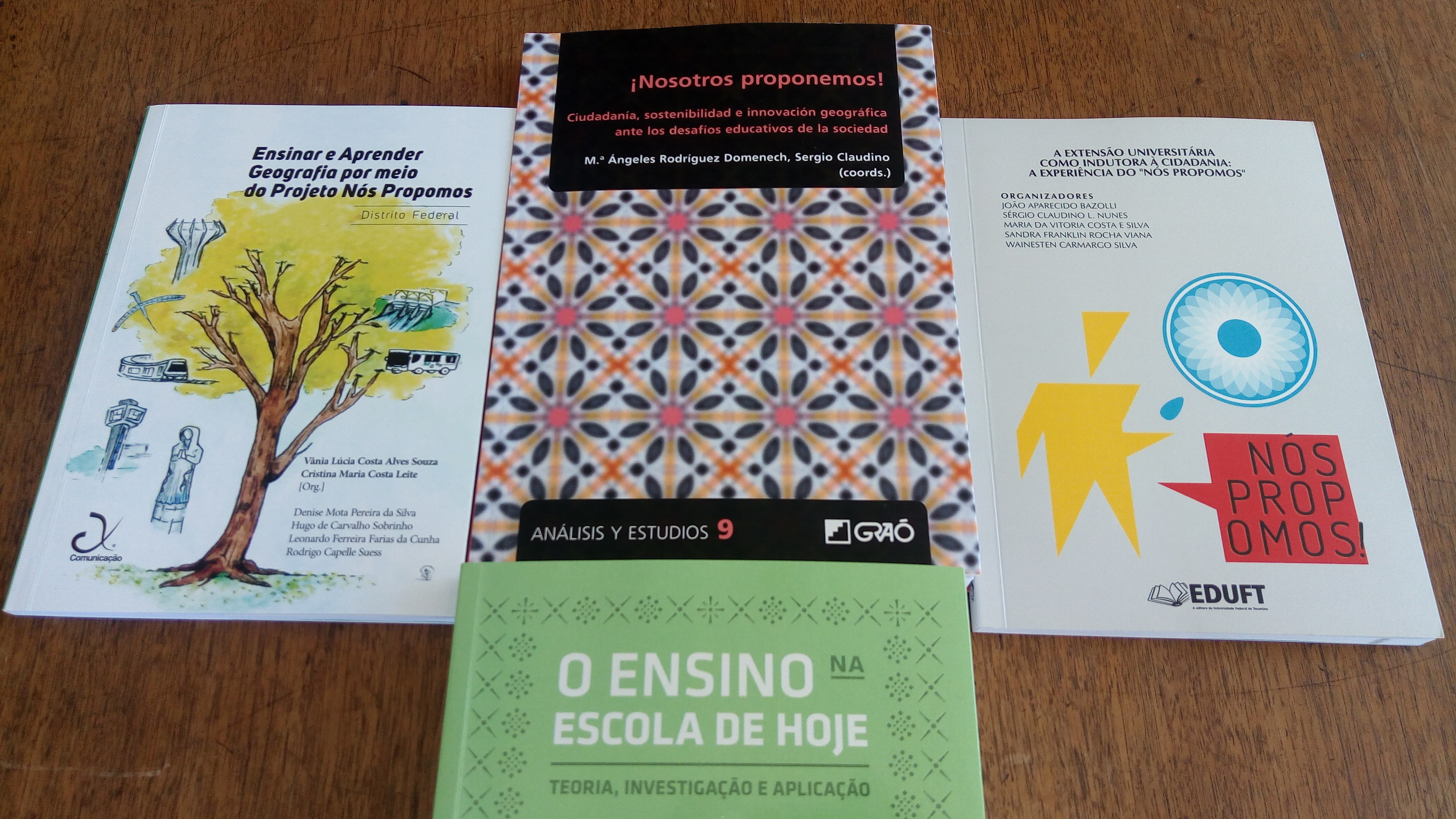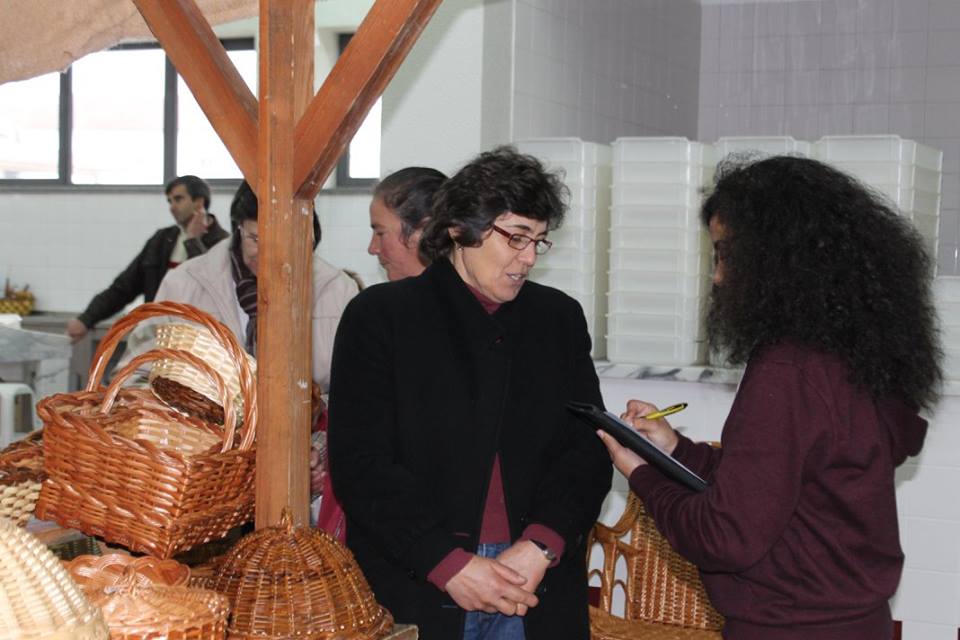Project We Proposed! Citizenship and innovation in geographical education
Description
The Project We Proposed! is implemented in Portugal (2011), Spain (2016), Mozambique (2017), Brazil (2014), Colombia (218), Peru (2017), Mexico (2018). Young people identify local problems relevant to them - these problems vary according to the local and regional characteristics. The young people then carry out fieldwork and present proposals for intervention, which they share with the municipal authorities and the community. Some of these proposals have been implemented. The project is coordinated by a university, which dialogues directly with nearby schools. There are municipalities directly involved in the Project. The International coordination is developed by IGOT/University of Lisbon.
The Project clearly addresses the identification of local socio-territorial problems, confusing its objectives clearly with the Sustainable Development Goals. Young people / students are organized in groups. The themes chosen cover a wide variety of problems.<br />
Thus, some of the themes that have been addressed and that cross directly with the Millennium Goals are presented:<br />
. by conducting population surveys, processing data collected and presenting intervention proposals, a more focused education in the development of practical, mobilizing and inclusive skills is promoted.<br />
. to combat the misuse of non-potable water by the community; seize wasted drinking water; alteration of the vegetation of parks and gardens, in order to save the available water and make its maintenance more sustainable;<br />
. order the forest in order to fight fires;<br />
. reclaim abandoned and ecologically sensitive spaces, such as river valleys, making them parks for the usufruct of the population most of the year<br />
. identify the local architectural heritage, protecting it from degradation and promoting the tourist activity<br />
. create equipment that facilitates the mobility of people with physical problems<br />
. identify abandoned spaces and equipment in the cities, presenting proposals for their use, namely by the poorest, oldest and most vulnerable population<br />
. in this sequence, create spaces for youth meetings, as well as for meetings and support for the elderly<br />
. discuss the construction of bicycle lanes in order to ensure a healthier and sustainable mobility<br />
. promote access to goods and services for more isolated and less mobile populations, such as the creation of mobile pharmacies<br />
. create small markets for the sale of local products, valuing the local economy and supporting populations with the most vulnerable resources<br />
The Project is worth, above all, for the education of attitudes: to be attentive to the local problems, whose resolution is the responsibility of each and everyone. Some projects have been implemented by the municipalities. However, most projects are not implemented immediately - which creates a sense of frustration among young people participating in the project. On the other hand, the We Proposed Project! has an enormous difficulty in obtaining funding for its activities, which is a major obstacle.<br />
Currently, two Portuguese municipalities (Cascais and Braga) and one Spanish municipality (Ciudad Real) are supporting the implementation of the We Proposed! Project, which constitutes a very important qualitative leap for the Project.
At the beginning of the school year, students are enrolled on the Project website, also as a form of identification and organization.
Students / youth are challenged to identify relevant socio-territorial problems.
After the initial discussion, they identify a central problem, avoiding dispersion.
Project coordination (university) conducts work sessions in schools, accompanying the implementation of the same.
They perform field work on it. Activities outside the classroom are required. In these fieldwork activities, it is important to listen to the population about the local problems they are studying, through surveys and interviews, whose data are later treated and that somehow legitimize their proposals.
In the middle of the school year, students respond to an online evaluation survey of the Project's development. From the coordination team, suggestions are given for reorganizing the work.
At the end of the school year, a Seminar is held at the University, where students from all schools present their proposals. Prizes are awarded to the most creative proposals.
This dissemination of the proposals is continued in the various localities, where the students present their proposals.
Students conduct an online evaluation of the Project's development.
The Project has been disseminated in various regional, national and international forums.
In launching surveys and interviews the young people put the public discussion local problems. Experience says that these problems are being solved over the next few years.
Then there are numerous projects that have been implemented to create bicycle lanes, create public transport between localities of a municipality, reclassify abandoned buildings for leisure or support the population, support abandoned animals, and qualify for public roads. However, there are many proposals of great interest to the community that are not properly valued and used. And there is a lot of work to do.
The Project We Proposed! has already given rise to master's and doctoral theses in progress or already carried out.
Three books have been published exclusively on the results of the Project and have been disseminated in several national and international publications. It is, in fact, an excellent example both of pupils' training and of teacher training.
However, there is a huge lack of human resources, in support of the Project, in addition to the financial ones, which compromise it. However, the Project continues to expand.
The Projeto Nós Porpomos1 demonstrates that it is possible to build a school in an active and fruitful dialogue with the community, in the perspective of solving their problems.<br />
To a large extent, the methodological simplicity of the Project helps explain its success and the flexibility itself. As mandatory points are only the selection of local problems relevant to young people, the carrying out of fieldwork and the presentation of proposals. On the other hand, networking has been fostered. The project coordinator has visited a large number of participating universities and schools. In 2018, the 1st Ibero-American Congress We Proposed: IGC-University of Lisbon, Geography, Education and Citizenship (Lisbon, September 7 to 12, 2018).
geoforoforo2.blogspot.com/
www.facebook.com/nospropomos
nospropomos.blogspot.com/
SDGS & Targets
Deliverables & Timeline
Resources mobilized
Partnership Progress
| Name | Description |
|---|
Feedback
Action Network


Timeline
Entity
Region
- Europe
Geographical coverage
Photos


Website/More information
Countries

Contact Information
Sérgio Claudino, PhD
